At the Hindustan Times Leadership Summit last year, hotelier Sonu Shivdasani spoke extensively about the hospitality industry’s responsibility towards the environment. Leisure can’t come at the cost of the future of our planet, he seemed to say.
His competition—if you can think of any—may have scoffed. You have to take care of your environment, they could tell him. Your main resorts are in the Maldivian islands, which are in danger of extinction.
The truth is, Sonu’s commitment to the environment, local culture and giving back dates to long before these phrases became millennial buzzwords. When I first visited Soneva Fushi and the then Soneva Gili in 2007, they used glass bottles instead of plastic ones. And Sonu always hired local talent, ensuring a touch of Maldives in an otherwise insulated international resort.
Then, in 2019, Sonu and his wife Eva quietly but surely started Namoona, a project aimed at organising waste management on the islands, but has today grown into so much more.
Waste to wealth
“Soneva Namoona was launched to solve a problem that has bedevilled the Maldives for a generation: how to properly dispose of waste. Presently, island communities burn their garbage in toxic, open bonfires, and significant amounts of waste, especially single-use plastics, washes up on the beaches, litters the jungles and smothers the coral reefs,” says Sonu, giving us the very opposite of the picture-perfect image that any thought of the Maldives instantly throws up.
“The word ‘Namoona’ was a suggestion from the Dharavandhoo Council President, and is a Divehi word that means ‘exemplary’ or ‘ideal’,” explains Sonu. “Our ambition is to create a blueprint for empowered zero waste communities in the Maldives, centred around the three core components of reduce, recycle and inspire, and grounded in the reality of the challenges and opportunities that are unique to local islands.”
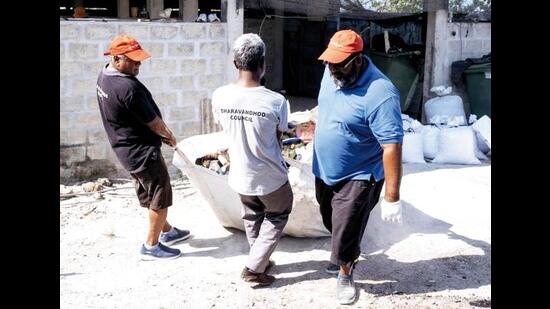
Soon after its inception, Soneva Namoona installed the first glass water bottling centre on a regional island. “Traditionally, the water consumed in restaurants, guest houses, and by the public on islands is from plastic bottles from a water bottling company in Male. But we filter and mineralise the desalinated island water and then place it in glass water bottles. When the bottles are returned, the user achieves a 20 per cent saving on their water purchase. Soneva Namoona water has sold the equivalent of, and avoided, 70,000 plastic bottles.”
In February 2020, Namoona made yet another first possible in the Maldives. The island of Maalhos became the first in the country to end the practice of burning its garbage in open bonfires. “This was made possible by the opening of the island’s Eco Centro Waste to Wealth Centre, funded by Soneva and modelled on Soneva Fushi’s own Eco Centro,” says Sonu.
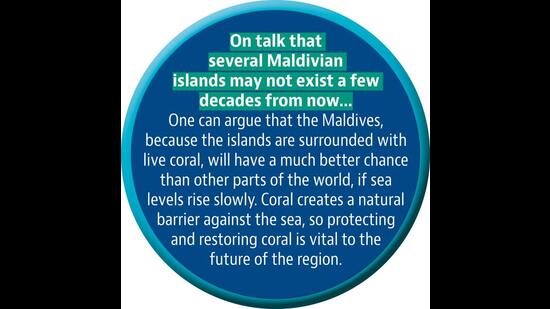
In the last 12 months, Namoona has extended its influence from three islands to four more, taking the total up to seven in the Baa atoll, from where 50 tonnes of aluminium, metal, plastics and cardboard were sent for recycling.
Purpose beyond profit
I ask Sonu: You are a hotelier with business interests in the Maldives. So, is Namoona a way to make the right sounds for positioning, or to actually give back to society?
Sonu’s answer is simple. “Soneva Namoona is a Maldivian NGO, hence, it is not driven for profit but to work with local islands.”
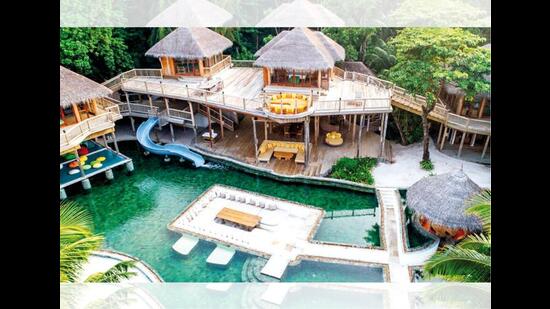
So what is Sonu’s main motivation in taking up such a Herculean task? “I have spent my life working in the hotel industry and devoted my career to building what is now a network of luxury resorts,” explains Sonu. “I do not believe that this puts me at odds with conservation. But I am the first to say that the hotel and tourism sectors should admit where they have failed and take steps to bring about change.
“As an industry, we consume far more than our fair share of resources. I believe all companies, hotel businesses included, must have a purpose beyond profit. They must play a greater role in the world beyond just enriching their shareholders. I don’t think this has to run counter to a successful business model; in fact, it can be central to it.”
Guardians of the Earth
For those who came in late, Sonu and his wife Eva Shivdasani (hence, “Soneva”) discovered the Maldives in the 1980s and ‘90s and decided to open a resort there and make it home.
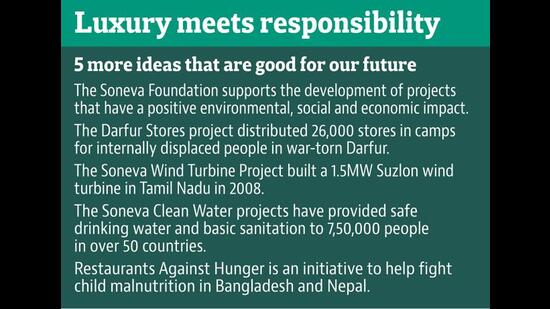
“I first visited the Maldives with Eva in 1987 and fell in love with the place,” Sonu recalls. “I had never seen anything quite like it. Eva, who had been coming to the Maldives for modelling shoots in the late 1980s and early 1990s, loved the untouched, simple way of life. We decided we wanted to open a resort like no other, whilst ensuring that we protect the environment. We combined our respective experiences in management, style and design to develop a resort that would satisfy our desire for a dream destination. We bought an abandoned resort on far flung 100-acre Kunfunadhoo Island, and set about creating our dream.”
That’s how Soneva Fushi was born in 1995. Now, 27 years later, it remains their most special resort, with newly added overwater villas and new events that continue making it a favourite.
“Do you know that at Soneva, we recycle what we can on-site by composting organic food waste and garden waste, and make our own charcoal from wood waste?” says Sonu with pride. “Glass waste is sent to Soneva Fushi’s Art and Glass Studio, where it is crushed and melted down to be made into art.”
Interestingly, Soneva charges its guests a two per cent environmental levy to offset carbon emissions. “It is small change, and a relatively small charge, which we found our guests were more than happy to accept,” says Sonu. “And the rewards have been great.”
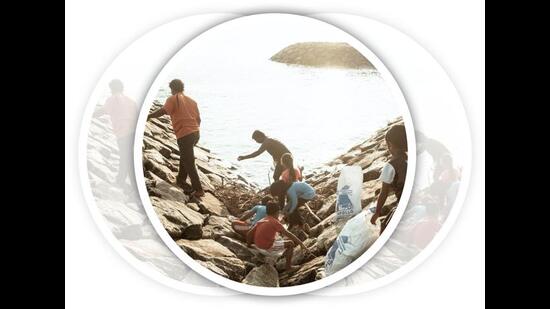
Sonu and Eva do not call themselves “owners”, they say they’re “guardians” and are “privileged to be able to look after these beautiful environments in our lifetime”. They also encourage Slow Life as the guiding principle. “It is our moral compass, as well as our operating compass,” says Sonu. “Sustainability runs through our core, and we always strive to limit the negative environmental impacts of our activities—which is both difficult, and yet critical.”
We hear that in addition to Soneva Fushi and Soneva Jani, there’s a Soneva Secret on the cards.
For the first time today, Sonu Shivdasani is at a loss for words. His marketing team instructs him that it’s not time to talk about it just yet.
We don’t mind. For Sonu and Eva Shivdasani have shown the world how great things are born out of love… for each other, and for the planet we live on.
Follow @JamalShaikh on Instagram and Twitter
From HT Brunch, January 7, 2023
Follow us on twitter.com/HTBrunch
Connect with us on facebook.com/hindustantimesbrunch


